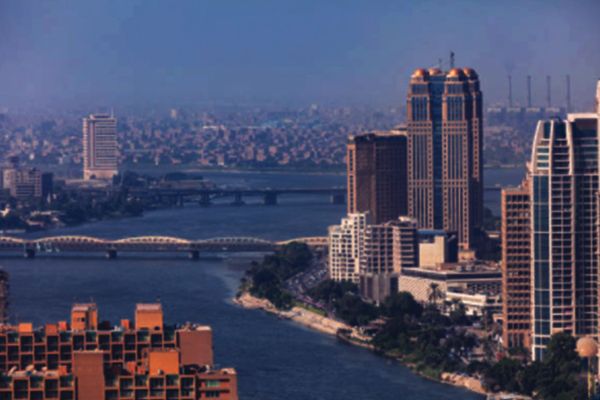African business news: March 2022

The latest business news from across Africa, including Kenya's push for low-emissions public transport and Amazon's HQ woes in Cape Town.
NAIROBI
Kenya Power has commenced talks with five electric vehicle companies as part of plans to clean up Nairobi’s polluted air.
The energy supplier told the firms it has the capacity to charge 50,000 buses and two million motorcycles during off-peak hours.
Acting Chief Executive Officer Rosemary Oduor told KBC the move will diversify Kenya Power’s revenue streams by making use of otherwise-idle power during off-peak hours.
According to Oduor, the country has an off-peak load of 1,200 megawatts (MW), enough to support the entire e-mobility infrastructure system, including charging stations for domestic and business use.
‘To support the growth of electrified motorisation in the country, Kenya Power has established a liaison office which will act as our one-stop shop to champion the company’s e-mobility business,’ said Oduor during the flag-off of BasiGo, Kenya’s first public service electric transport firm.
‘We will work with other stakeholders to support the development of the e-mobility eco-system, which will include the identification of sites for potential charging stations, as well as requisite geo-mapping software to enable users locate the nearest charging station.’
Oduor added: ‘From our initial computations on the size of business opportunity, an average minibus, operating within Nairobi, covers approximately 200kms per day and consumes 120 kilowatts per hour [per vehicle]. A thousand minibuses, operating within the city, would therefore consume approximately 120 MW per hour per day.’
In February, BasiGo secured $4.2 million in funding to construct an assembly plant and boost production capacity of electric buses.
Kenya Power is banking on its partnership with BasiGo and others after a turbulent few years of business.
The utility giant bounced back to profitability in 2021, recording net profits of $33.2 million between July and December.
HARARE
Zimbabwean president Emmerson Mnangagwa received a pre-election campaign boost on March 9, after Kenya signed seven bilateral agreements with Zimbabwe designed to boost trade between the two nations.
The meeting between the two leaders at the State House in Nairobi saw agreements on political and diplomatic consultations, tourism and wildlife conservation, and civil aircraft accidents and serious incidents investigations, amongst others.
President Kenyatta also urged Western countries to scrap the restrictions against Zimbabwe during a joint press briefing with President Mnangagwa, and the two countries renewed their bid to deepen trade and investment.
In February, the European Union (EU) renewed its two-decades-old sanctions against Zimbabwe, citing 'continued human rights violations and closure of the democratic space'.
Zimbabwe has been under EU targeted sanctions since 2002 after a violent election saw former president Robert Mugabe hold on to power.
After Mugabe was toppled in a military coup in 2017, his successor Mnangagwa pushed for the normalisation of ties with the West, but this is yet to bear fruit.
Last year, the US extended sanctions against 141 entities and individuals in Zimbabwe, including its president. The UK also has targeted sanctions against its former colony.
The African Union (AU) and Southern African Development Community (SADC) have campaigned for the removal of these curbs without success.
Zimbabweans go to the polls in by-elections on March 26.

CAIRO
The Egyptian capital (pictured above) has been named the top business city in Africa by a new research report.
The Statista Global Business Cities Report ranks 200 cities from across the globe based on the most relevant data for business decision-makers, such as GDP, local infrastructure, the education of its workforce, ease of business, and the cleanliness and attractiveness of the city for would-be visitors.
Cairo pipped Algiers and Johannesburg to the top spot in Africa, while Casablanca, Nairobi, Cape Town, Accra and Lagos were all reviewed by the report.
The report cited Cairo's position as one of the biggest cities in the Middle East for its high ranking, while also crediting its ancient tourist attractions and modern amenities.
PRETORIA
South Africa's state power company Eskom has escalated its power rationing system - known as 'load shedding'.
The decision, which was announced on March 9, will see businesses and households across the country hit by managed power outages as the country moves to 'Stage 4' load shedding.
Under Stage 4 load shedding, up to 4,000 megawatts (MW) of capacity has to be shed by the utility giant in order to prevent rolling blackouts. This is achieved by briefly turning off the power in different areas of the country to stop the system overloading. Consumers will either have their power cut up to 12 times over a four-day period for two hours at a time, or 12 times over an eight-day period for four hours at a time. Dates and times of local blackouts are usually released in advance so businesses and households can prepare.
Eksom appealed to South Africans to help it limit the impact of load shedding by voluntarily reducing their electricity usage by switching off all non-essential items.
A statement by the company apologised for the rationing and said it would 'continuously review the situation and act appropriately as circumstances change'.



